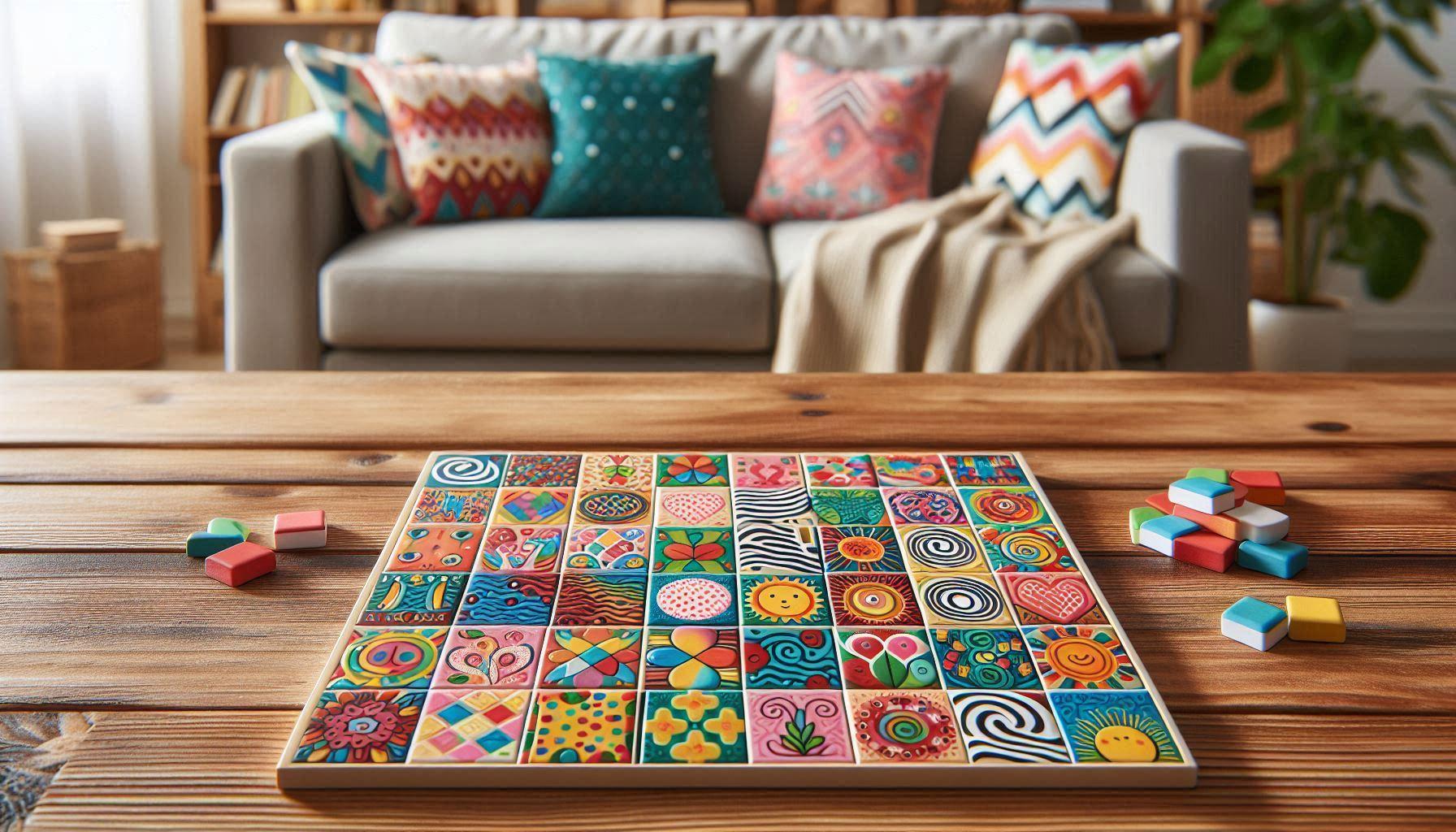The Power of Play in Child Development
Children's games and puzzles are more than just entertainment—they’re vital tools for fostering creativity, critical thinking, and social skills. According to the American Academy of Pediatrics, play is essential for brain development, helping kids build problem-solving abilities and emotional resilience. From classic jigsaw puzzles to interactive board games, these activities lay the foundation for lifelong learning. In this guide, we’ll explore the benefits of children's games and puzzles, share top picks for every age, and offer tips to maximize their educational value.
Why Children's Games and Puzzles Matter
1. Cognitive Development
Puzzles and strategy games enhance memory, spatial awareness, and logical reasoning. For example, assembling a jigsaw puzzle strengthens a child’s ability to recognize patterns and shapes.
2. Motor Skills
Activities like stacking blocks or manipulating puzzle pieces improve fine motor skills and hand-eye coordination, crucial for tasks like writing.
3. Social and Emotional Growth
Board games teach teamwork, patience, and sportsmanship. Games like Candy Land encourage turn-taking and empathy.
4. Creativity and Imagination
Open-ended games (e.g., LEGO® or role-playing kits) let kids invent stories and explore new worlds.
5. Academic Readiness
Educational puzzles (alphabet, numbers) introduce math and literacy concepts in a playful way.
Top Types of Children's Games and Puzzles
1. Jigsaw Puzzles
-
Best For: All ages (toddlers to teens).
-
Examples:
-
Melissa & Doug Floor Puzzles (ages 3+): Large, durable pieces with vibrant themes like dinosaurs or maps.
-
Ravensburger Disney Puzzles (ages 6+): Complex designs for older kids.
-
2. Board Games
-
Best For: Family bonding and social skills.
-
Examples:
-
Guess Who? (ages 4+): Enhances deductive reasoning.
-
Ticket to Ride: First Journey (ages 6+): Introduces strategy and geography.
-
3. Educational Puzzles
-
Best For: Early learners.
-
Examples:
-
LeapFrog Number Lovin’ Oven (ages 2+): Combines counting with pretend play.
-
Coogam Sight Words Puzzles (ages 4+): Reinforces reading skills.
-
4. Outdoor Games
-
Best For: Physical activity and coordination.
-
Examples:
-
Scavenger Hunts: Encourages exploration and observation.
-
Hopscotch: Develops balance and number recognition.
-
5. Digital Puzzles
-
Best For: Tech-savvy kids (with screen-time limits).
-
Examples:
-
PBS Kids Games App: Free, educational mini-games.
-
Monument Valley (ages 8+): A visually stunning puzzle adventure.
-
Age-Appropriate Recommendations
Toddlers (1–3 Years)
-
Games: Shape sorters, soft stacking blocks.
-
Puzzles: Chunky wooden puzzles with 2–4 pieces (e.g., animals, vehicles).
-
Safety Tip: Avoid small parts; opt for non-toxic, BPA-free materials.
Preschoolers (3–5 Years)
-
Games: Memory matching games, simple board games like The Sneaky, Snacky Squirrel Game.
-
Puzzles: 24–50 piece puzzles with themed interests (e.g., superheroes, princesses).
School-Aged Kids (6–12 Years)
-
Games: Strategy-based games like Catan Junior or Qwirkle.
-
Puzzles: 100+ piece jigsaws, 3D puzzles (e.g., Ravensburger Solar System).
Safety Tips for Choosing Children's Games and Puzzles
-
Check Age Labels: Follow manufacturer guidelines to avoid choking hazards.
-
Non-Toxic Materials: Ensure puzzles are painted with child-safe, lead-free coatings.
-
Supervise Play: Especially for toddlers and complex games.
-
Limit Screen Time: Balance digital games with offline activities.
Where to Buy Quality Children's Games and Puzzles
-
Trusted Brands: Melissa & Doug, Ravensburger, Hape, and ThinkFun.
-
Retailers: Amazon, Target, local toy stores, and educational specialty shops.
-
Secondhand Options: Check eBay or Facebook Marketplace for gently used sets.
FAQs About Children's Games and Puzzles
Q: How long should kids play puzzles daily?
A: 15–30 minutes for toddlers; up to 1 hour for older children. Follow their interest!
Q: Can puzzles help with ADHD?
A: Yes! They improve focus and provide a calming, structured activity.
Q: What if my child gets frustrated with a game?
A: Offer encouragement, simplify rules, or switch to a different activity.
Conclusion: Unlocking Potential Through Play
Children's games puzzles are timeless tools that blend fun with foundational learning. By choosing age-appropriate activities and prioritizing safety, parents and educators can nurture curious, confident, and capable learners. Ready to play? Explore our top picks and watch your child’s skills soar—one puzzle piece at a time.
Also Check Out More Game: puzzle games
